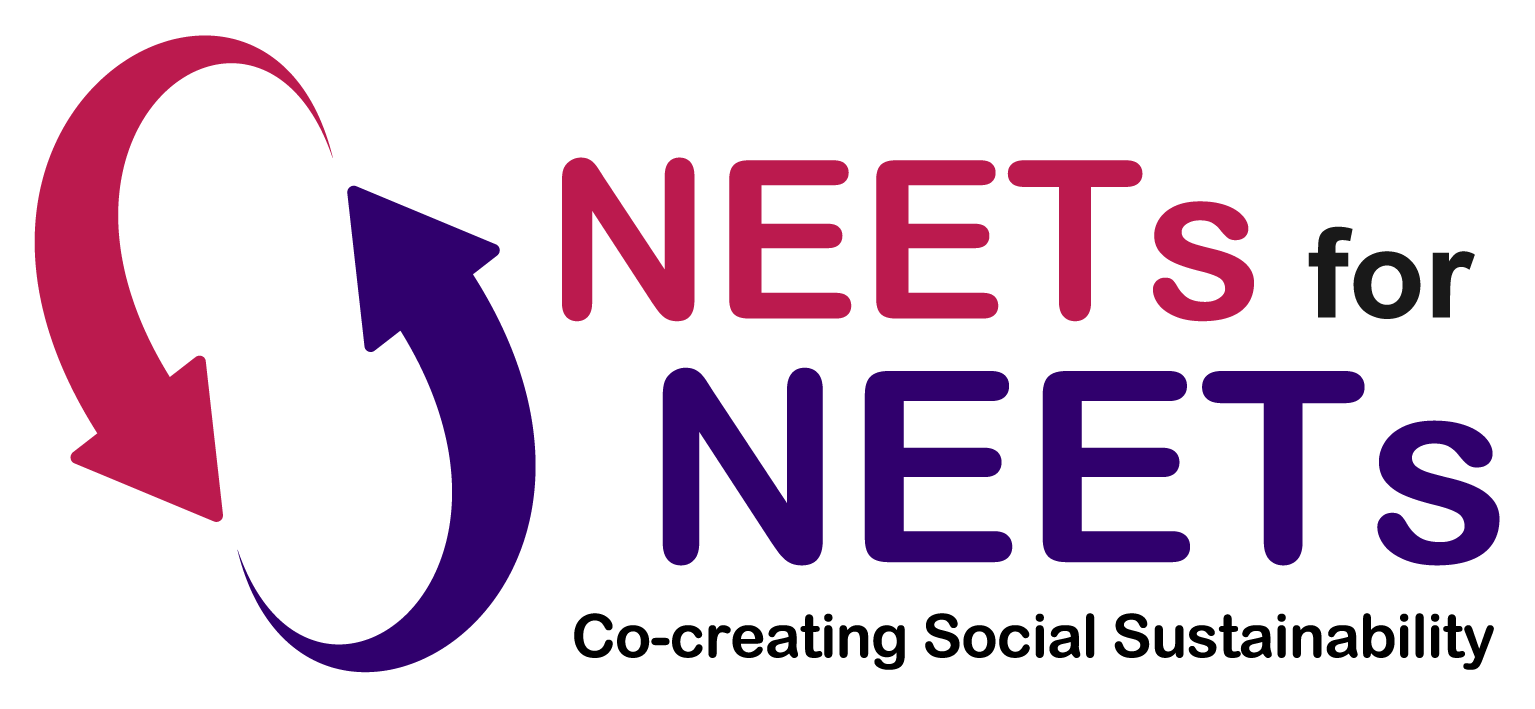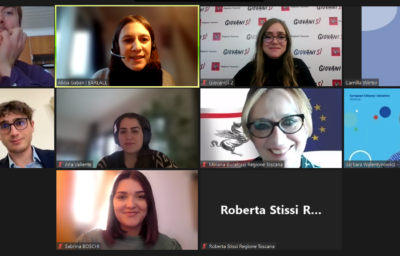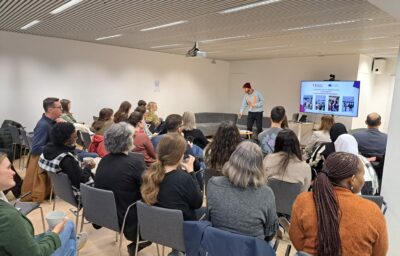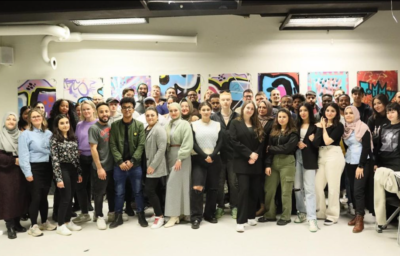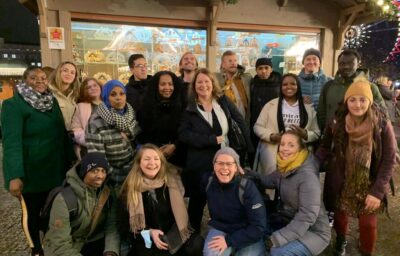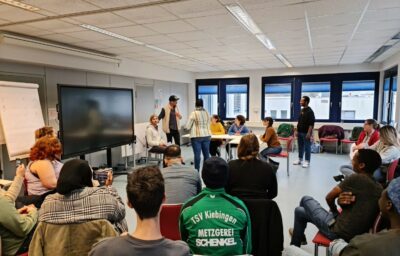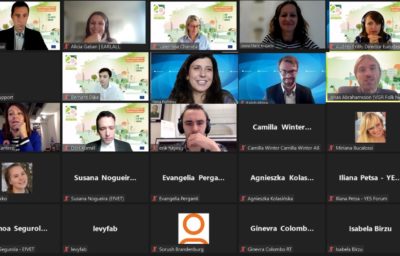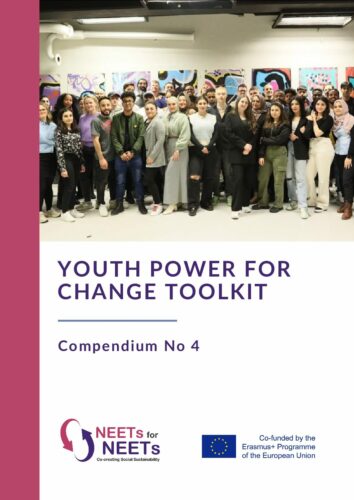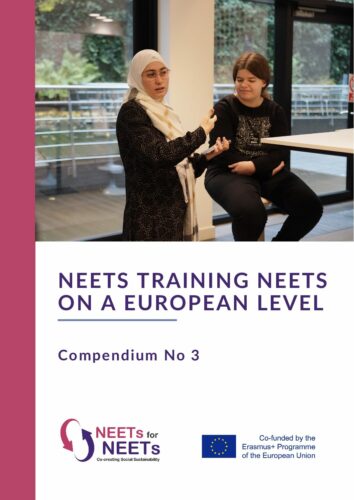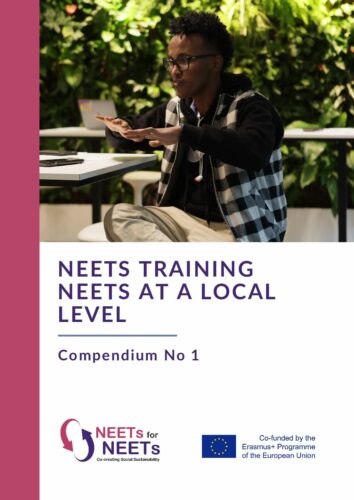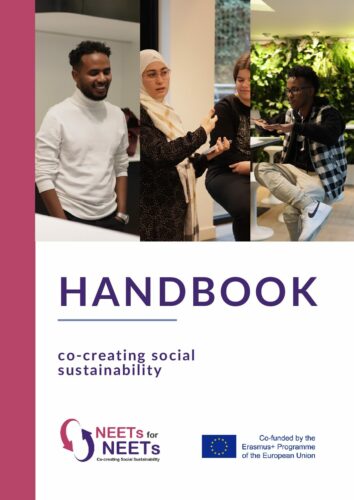NEETs for NEETs – Co-creating Social Sustainability
Currently, I am planning a youth forum in a reception centre. This was already planned before the training, but the execution of the forum is now way clearer for me. The training was really useful in helping the planning of the forum because I got inspired and I hope that I can give the same feeling to the youth. I took the idea that the forum must be co-created equally, and I should only support this as the forum leader. We are working now on the idea of including youths in all steps of the process..
– Jasmina, staff member in Sweden
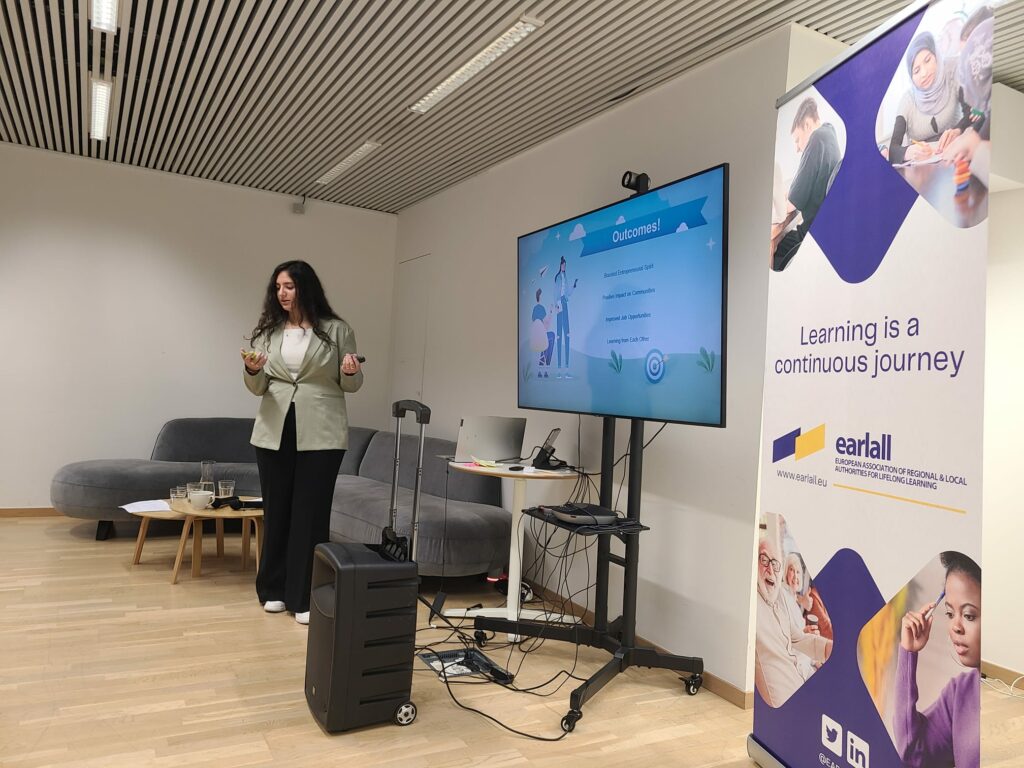
The number of young people that are not involved in any kind of education and training or that are unemployed (so called NEETs) have remained at high levels. In this regard the NEETs for NEETs project aims at improving inclusive methods to empower young adults, therefore improving the conditions of NEETs. To do so, project partners will involve Adult Educators to co-create and design trainings with and by NEETs themselves.
The project was kicked-off in February 2022.
Implementation of an existing model
With the NEETs for NEETs project, partners from Sweden, Germany, Norway and Belgium aim to exchange best practices and commonly improve new and innovative instruments and activities created together with the NEETs and the Adult Educators. Based on an existing example of good practice, the project will broaden and modify the ReAct Self-Empowerment model, developed by the refugee organisation Support Group Network (SGN) and implemented by Save the Children (Sweden). The NEETs for NEETs project will learn from these experiences and practices, adapting them to the challenges and possibilities offered.
Local Pilot Trainings
On the basis of the ReAct model the partners of the project consortium – together with the group of NEETs – created, piloted and analysed new types of self-organisation, collaboration and learning methods for the target group of NEETs. In the framework of this new training concept, NEETs will become training experts sharing knowledge, experiences, personal goals and development strategies as well as dreams and motivation with other NEETs. This occurred within the framework of local training in May and September 2022 (Gothenburg, Sweden); September 2022 (Oslo, Denmark) and October 2022 (Stuttgart, Germany).
NEETS training NEETs at the European Level

Train the Trainer – Stuttgart
The first ‘Train the Trainer’ style workshop for the NEETs for NEETs project was organised by Volkshochschulverband Baden-Württemberg (VHS) in Stuttgart, Germany, from 29 November – 1 December.
The ‘Train the Trainer’ workshop invited 17 staff members from project partners: Support Group Network; Save the Children; Region Västra Götaland Folk High Schools (Sweden); Borås Stad (Sweden); Nav Bjerke (Denmark); Oslo VO Rosenhof (Denmark); Stuttgart City and Volkshochschulverband Baden-Württemberg (Germany) to be trained by 18 young adults (NEETs or with relevant experiences) from Norway, Sweden and Germany.
Train the Trainer – Borås Stad
The second Train-the-Trainer workshop was held in Borås Stad, Sweden. The goals of the workshop was to:
- Enable NEETs to become trainers themselves, having the knowledge and skills to train the originally presupposed trainers, i.e., the staff
- Create prerequisites for staff members to obtain new knowledge, referred to us as a change in perspective, where a reversal of roles has taken place. I.e., NEETs become architects of their own lives, while staff around NEETs adapt to their new roles as disciples, learning from the life experience and expertise of NEETs in question.
- That NEETs and staff will use co-creation as a tool for solving problems and for increasing their self-confidence
How were the participants of the project impacted?
We spoke with Maria from Sweden about her experience in the #N4Neets @EUErasmusPlus project
— EARLALL (@earlallEU) January 30, 2023
👉The Project is all about creating #YouthPower4Change by encouraging young people to learn new tools to help themselves
➡ Read more: https://t.co/BM3ScT2VqV@SGN_Support @raddabarnen pic.twitter.com/ZZWqCT42qg
🔊 We spoke with Jasmina from @raddabarnen about her experience in the latest #N4Neets training.
— EARLALL (@earlallEU) January 17, 2023
She talked about:
🎭 Forum Theatre
🙌 Sustaining #YouthPowerForChange
🎉 The adventure of the training!
➡The interview ➡ https://t.co/ko23pZvQZY@EU_Social @EUErasmusPlus @vhs_bw pic.twitter.com/X0Rw3rn8PU
👉18 young adults took part in the #N4NEETs training workshop in Stuttgart.
— EARLALL (@earlallEU) January 16, 2023
👏#N4NEETs is an @EUErasmusPlus project, aiming to socially co-create #socialsustainibility
🙌 @raddabarnen @SGN_Support @RegionVastraGot @vhs_bw @EU_Social
🗣The interview ➡ https://t.co/6Wb38Ss5lw pic.twitter.com/fbJZ7XpqtV
Project Results
NEETs for NEETs Handbook
This handbook serves a dual purpose: firstly, to describe tools that can be effectively utilised by young adults and staff members within organisations dedicated to working with them to foster co-creation. Secondly, it provides an account of the project’s tools, sharing partners’ experiences at local and international levels. Readers will gain insights into the rationale behind co-creating with NEETs, access tools developed during the project, and explore results showcasing specific NEETs collaborations. This handbook provides a deeper understanding of NEETs-related challenges and a toolkit to actively address them.
FINAL-VERSION-HANDBOOKCompendium 1: NEETs Training NEETs at Local Level
This project result has been realised mostly thanks to the ReACT model, modified and refined by the NEETs for NEETs project team throughout the first half of the project duration. This modification of the ReACT model – in order to fit the NEETs for NEETs project – was a process mainly led by Save The Children and the Support Group Network. We assumed on beforehand that the model would need revisions by entering the NEETs for NEETs project, since it previously has been used for enabling empowerment and civic participatory work targeting refugees and third-country nationals. Now, thanks to this project, we were facing a new “target group” as it is being called in project language. NEETs have a lot in common with our previous “target groups” (many of previous participants targeted within the framework of ReACT were NEETs, or did have previous experiences of being NEETs), but we have also seen some new challenging elements while operating in this project. For example, NEETs’ previous experiences – not fulfilling their studies due to diverse reasons – have left many of them with very low tolerance towards listening to adult lecturing. That is – they do not appreciate to receive a lot of information in classroom settings. Hence, the question arose: How should we hand out information to NEETs about the importance of the ReACT tools for empowering oneself, and other surrounding youths, if some of these NEETs have resistance towards receiving information in the first place? Thanks to carrying out these NEETs training NEETs at local level pilots (project result number 1 in the NEETs for NEETs project), we felt that we gained important insights on how to provide answers to such complex questions for future endeavours.
Compendium-1-PDF_mergedCompendium 2: NEETs Training Experts
In the framework of the NEETs for NEETs project, the concept “NEETs training experts” has
been piloted in two so-called Learning, Teaching and Training Activities (LTTs) on an
international level. For the NEETs, these trainings in English were particularly challenging but
successful – as surveys among participants showed. A significant impact of the training
concept both for the trainings’ target group of experts from the field of adult education as well
as for the group of NEETs was reported in surveys among participants after the trainings. Staff
was equipped with the necessary competences as described above that allows fundamental
innovation concerning the work with NEETs. The group of NEETs experienced self-sufficiency
and, as a consequence, enhanced abilities to affect their own reality. (see also N4N handbook).
As the compendium on a training concept “NEETs training experts“ ensures that the training
concept can be easily transferred to other European regions this impact is not only expected
in the project regions.
Compendium 3: NEETs Training NEETs on the European Level
The target groups of this compendium are staff from adult education institutions, i. e. planning staff, teachers, trainers and other experts working with young adults. Aforementioned staff shall be enabled to organise inclusive international pedagogical concepts and integrate the learners themselves into the training process as facilitators and trainers. The training concept “NEETs training NEETs on a European level”, as described in the following, incorporates these innovations. The new approach addresses challenges that are relevant for almost all European countries and regions as rising numbers of NEETs are widespread in the EU. Therefore, the project result has a high transferability potential as it provides solutions in an area that is a key challenge for many regions. It can also be adopted or serve as a model for similar initiatives and other target groups. Based on experiences with empowerment strategies with refugees, a significant positive impact on the quality of adult learning, the professionalization and change of perspectives of staff as well as the personal development effects of the target group of NEETs can be expected.
Compendium-3-PDF_mergedCompendium 4: Youth Power for Change ToolKit
This is a low-threshold toolkit for NEETs training other NEETs, based on the previous compendium above. It is accompanied by videos in order to ensure accessibility of the content.
Compendium-4-PDF_merged




